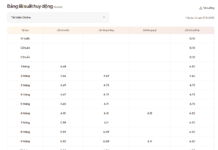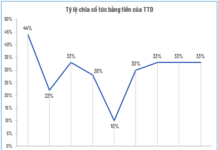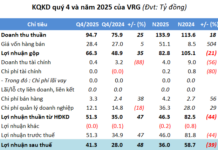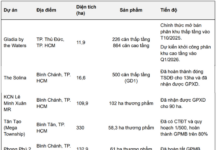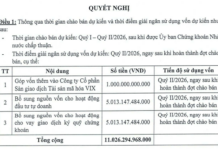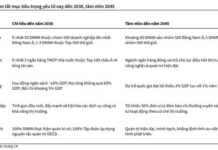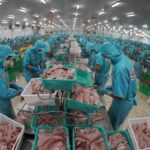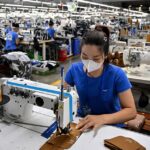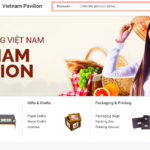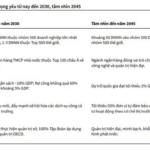According to the ruling, Vietnamese hot-rolled steel entering the European Union (EU) market will be subject to a 12.1% anti-dumping duty. Notably, products manufactured by Hoa Phat Group and its subsidiaries are exempt from this tariff. In contrast, Formosa Ha Tinh, a major steel producer in Vietnam, will face the aforementioned duty.
Beyond Vietnam, leading Japanese steel conglomerates such as Nippon Steel Corporation, JFE Steel, and Daido Steel will incur duties ranging from 29.8% to 30%, while Tokyo Steel faces a 6.9% rate. Egypt’s steel exports to the EU are subject to a blanket duty of 11.7%.
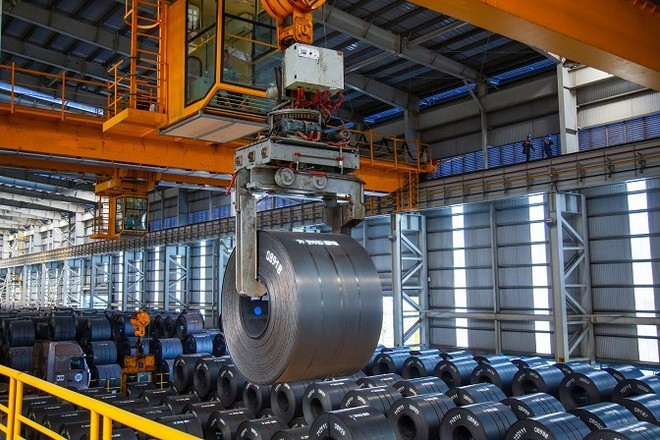
Vietnamese hot-rolled steel exports to the EU face a 12.1% duty.
This decision means Vietnamese hot-rolled steel shipments to the EU will incur additional costs, significantly eroding their price competitiveness. This poses a substantial challenge for Vietnam’s steel industry, which has been striving to expand its European market presence following the implementation of the EU-Vietnam Free Trade Agreement (EVFTA).
The anti-dumping investigation into hot-rolled steel imports from Vietnam and other countries was initiated on August 8, 2024, following a complaint by the European Steel Association.
The investigation period for dumping practices spans from April 1, 2023, to March 31, 2024, while the injury investigation covers January 1, 2021, to March 31, 2024. The European Commission previously determined that the EU’s hot-rolled steel industry suffered significant harm, evidenced by declines in market share, sales prices, profits, investment, and employment.
In addition to hot-rolled steel, the EU has launched an anti-dumping investigation into cold-rolled steel imports from Vietnam and other nations. This investigation will run from July 1, 2024, to June 30, 2025, raising concerns that other Vietnamese steel products may face similar barriers.
Analysts suggest that the imposition of anti-dumping duties underscores the need for Vietnam’s steel industry to restructure its strategy, enhancing competitiveness while diversifying export markets.
Unlocking Export Growth Through Free Trade Agreements: Navigating Opportunities and Challenges
Free Trade Agreements (FTAs) signed by Vietnam serve as more than just trade instruments; they are powerful catalysts for institutional reform and enhancing the nation’s competitive edge.
“EVFTA: A Half-Decade Trade Triumph for Vietnam and the EU, with Nearly $300 Billion in Commerce”
After 5 years in effect, the EVFTA has facilitated trade between Vietnam and the EU, totaling nearly $300 billion. This has elevated Vietnam’s standing in ASEAN and on the global stage. The agreement has also driven institutional reforms, promoted the adoption of international standards, and fostered stronger business connections.
“The EVFTA at Five: A $300 Billion Trade Boost”
After 5 years in effect, the EVFTA agreement has catalyzed bilateral trade to reach nearly $300 billion, propelling Vietnam to become the EU’s top trading partner in ASEAN and 16th largest in the world.
Introducing the “Vietnam Pavilion – National Pavilion of Vietnam” on the Alibaba E-Commerce Platform
To support international businesses, especially European enterprises, in seeking product information, business partners, and market expansion in Vietnam, the Trade Promotion Agency – Ministry of Industry and Trade of Vietnam is pleased to introduce the “Vietnam National Pavilion – Vietnam Pavilion” on the Alibaba.com e-commerce platform.










